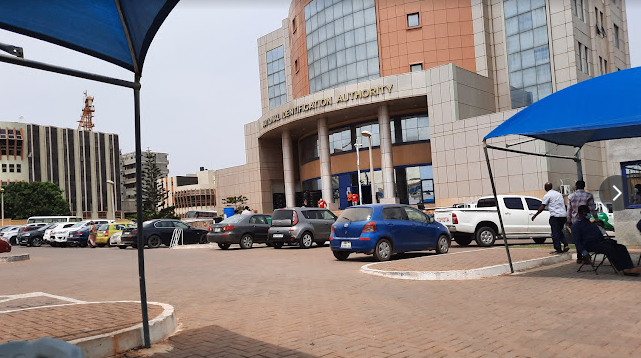Vice President Dr. Mahamudu Bawumia has stated that the best way to support the Cedi is by using gold.
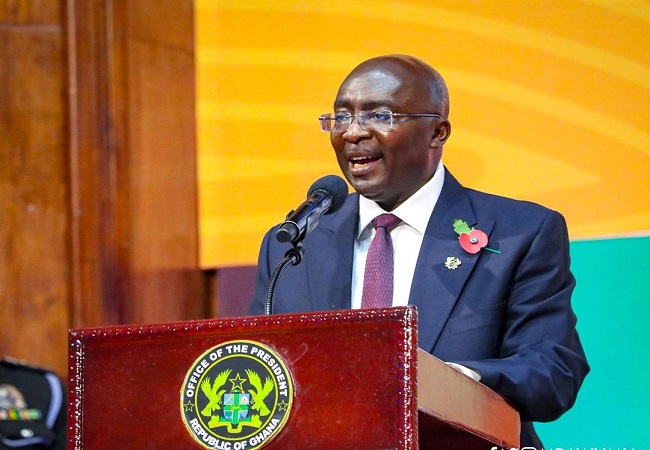
He proposed that all significant gold demands be handled through the Bank of Ghana’s gold purchase program.
Speaking at the opening of the Royal Ghana Gold Refinery in Accra on August 8, Dr. Bawumia suggested introducing a new foreign exchange management system next year, where the Cedi’s value would be anchored to gold.
He emphasized that gold is the best anchor for the Cedi and believes this approach will improve foreign exchange management.
“I am proposing a framework which we will discuss with the central bank, of course, and we will see where. But the framework that I am proposing is very simple.
Having looked at all that we have done, all significant demand for gold should be channelled through the Bank of Ghana’s gold purchase programme.
If you have GHȼ3 billion and you are looking to buy forex, the Bank of Ghana can take the GHȼ3 billion and buy gold and give you your forex. Demand equals supply, exchange rate doesn’t move.
“It is just a simple use of our gold reserves to meet the demands of forex. Once you can anchor the Cedi with gold so that you are able to meet demand then there are so many extra forex reserves to do other things for the country.
But then you will maintain long-term exchange rate stability, which will be anchored on gold and then we will move forward.”
Under the DGPP, he said, the Bank of Ghana has been able to accumulate sizable foreign exchange buffers, for the most part, significantly exceeding expectations under the IMF programme.
Since inception of the Domestic gold purchase programme, he said, the Bank of Ghana has bought 65.4 tons of gold, valued at US$5.07 billion.
“This year, since January, the Bank has bought 23 tons of gold valued at about US$1.8 billion.
The programme, along with other donor disbursements, puts the Bank in a favourable position to support the country’s external payments obligations as and when they fall due,” Dr Addison said also during the opening of Royal Gold Ghana Limited (RGGL) on Thursday, August 8.
Dr. Ernest Addison noted that gold is currently Ghana’s top export, with projected earnings for 2024 estimated to be close to $10 billion.
He highlighted that gold’s value chain offers significant opportunities for job creation, increased foreign exchange earnings, and economic growth.
Despite Ghana’s long history of gold exports, he pointed out that the mineral’s full potential for boosting the local economy has yet to be fully realized.
The exportation of raw materials without value addition results in potential loss of revenue and jobs, he said.
Dr Addison said the opening of this gold refinery opens a new era to promote gold beneficiation and value addition which will contribute to economic growth, poverty reduction, and ultimately improvement in the livelihoods of Ghanaians.
These are all based on the notion that value addition to Ghana’s gold resources holds the potential to increase foreign exchange earnings, improve the balance of payments position, and in turn, provide enough buffers against external vulnerabilities and shocks to the economy, he said.
“Today’s event will no doubt provide impetus to BoG’s successful Domestic Gold Purchase Programme (DGPP). Under the DGPP, the Bank of Ghana has been able to accumulate sizable foreign exchange buffers, for the most part, significantly exceeding expectations under the IMF programme.
Since inception of the Domestic gold purchase programme, the Bank of Ghana has bought 65.4 tons of gold, valued at US$5.07 billion. This year, since January, the Bank has bought 23 tons of gold valued at about US$1.8 billion.
The programme, along with other donor disbursements, puts the Bank in a favourable position to support the country’s external payments obligations as and when they fall due.
“The benefits of establishing a local gold refinery broadly aligns with Bank of Ghana’s objective to build adequate foreign reserves to stabilise the economy during adverse domestic and external shocks and help achieve its core mandate of price stability, and we are extremely pleased with the opening of the Refinery today.
Finally, let me congratulate the Board, Management, and staff of RGGL on this achievement. Your hard work and dedication have paid off, and we look forward to impactful operations of this new refinery on the Ghanaian economy.
To the key stakeholders, including the Government of the Republic of Ghana, mining companies, and artisanal and small-scale miners, I urge you all to support this bold initiative.
Let us work together to promote the growth of our gold industry, add value to our natural resources, and build a prosperous future for our nation. Congratulations to RGGL once again and I wish you success in your operations.
Thank you and May God bless our homeland Ghana.”


































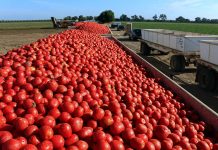

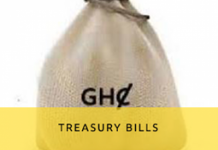



















![[FREE FREE MONEY] Predict and Win a Guaranteed GH¢200 From Us EVERY WEEK](https://wordpress.ghanatalksradio.com/wp-content/uploads/2022/02/Predict-and-Win-Final-09-03-2021-218x150.jpg)
![[Predict & Win – 8th/Oct.] WIN A Guaranteed ¢200 From Us This Week](https://wordpress.ghanatalksradio.com/wp-content/uploads/2021/10/maxresdefault-16-218x150.jpg)
![[Predict & Win – 2nd] WIN A Guaranteed ¢200 From Us This Week](https://wordpress.ghanatalksradio.com/wp-content/uploads/2021/09/maxresdefault-50-218x150.jpg)
![[Predict & Win – 25th] WIN A Guaranteed ¢200 From Us This Week](https://wordpress.ghanatalksradio.com/wp-content/uploads/2021/09/maxresdefault-36-218x150.jpg)
![[Predict & Win – 18th] WIN A Guaranteed ¢200 From Us This Week](https://wordpress.ghanatalksradio.com/wp-content/uploads/2021/09/maxresdefault-23-218x150.jpg)

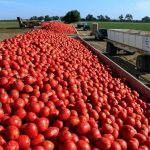





![[National cathedral] See full list of churches that have contributed since 2018](https://wordpress.ghanatalksradio.com/wp-content/uploads/2020/09/Ghana-National-Cathedral-GhanaTalksRadio-100x70.jpg)


